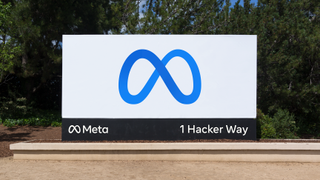Mozilla wants to show just how much Meta and Facebook tracks you
The world can't wait for Meta to do the right thing, researchers say

Firefox maker Mozilla has announced a wide-ranging new program aiming to discover the scope and depth of tracking services used by Facebook parent company Meta.
Led by Rally, Mozilla’s privacy-first data-sharing platform, The Facebook Pixel Hunt will be conducted together with The Markup Team, an American non-profit data-driven journalism organization, covering the ethics and impact of technology on society, as well as Mozilla volunteering users.
“According to its own privacy policy, Facebook may collect information about you across the web even if you don’t have a Facebook account,” the project’s website reads. “One way Facebook performs this tracking is through a network of “pixels” that may be installed on many of the sites you visit. By joining this study, you will help Rally and The Markup investigate and report on where Facebook is tracking you and what kind of information they are collecting.”
Raising awareness
To help the two organizations, users need to install Rally (which you can do on this link), and then sign up for the Facebook Pixel Hunt on this link. After that, it’s business as usual. They surf, the data gets generated, collected, and sent to the two companies for analysis.
Mozilla launched Rally in June 2021 as an extension for the popular browser that aims to raise awareness of the value of people’s data.
The data that gets created through the use of the extension will be used to support various studies. Among the first ones was a study by Princeton University’s Center for Information Technology Policy’s on news and misinformation about politics and Covid-19 on digital services, and the Stanford University Graduate School of Business study on how people consume news and the impact ads have on the consumers.
The Markup, however, will be the first time Rally’s partnered up with an organization that doesn’t come from academia.
Are you a pro? Subscribe to our newsletter
Sign up to the TechRadar Pro newsletter to get all the top news, opinion, features and guidance your business needs to succeed!
According to AdWeek, Rally product lead at Mozilla, Ted Han, said in a statement that the world cannot wait on platforms to “do the right thing, especially when so much depends on it”.
“This partnership seeks to lead the way in providing new and critical ways of illuminating the reality of the internet, led by the people who make it. This partnership comes at a time when the consequences of fragmented awareness have never been more stark.”
At the time of increased risk of identity theft, protecting one's online data has never been more important. Internet users are often advised to be careful who they share their personal information with, to use strong authentication methods whenever possible, and to connect to the internet via VPN in order to encrypt the communication channel.
Facebook has often been criticized for the way it handles user data, with one of the bigger incidents happening between 2013 and 2016. Back then, it was uncovered that the company provided British consulting firm Cambridge Analytica access to user data, without their consent, for the purpose of political advertising, ahead of the 2016 US presidential elections.
- You might want to check out our list of the best proxies right now
Sead is a seasoned freelance journalist based in Sarajevo, Bosnia and Herzegovina. He writes about IT (cloud, IoT, 5G, VPN) and cybersecurity (ransomware, data breaches, laws and regulations). In his career, spanning more than a decade, he’s written for numerous media outlets, including Al Jazeera Balkans. He’s also held several modules on content writing for Represent Communications.
